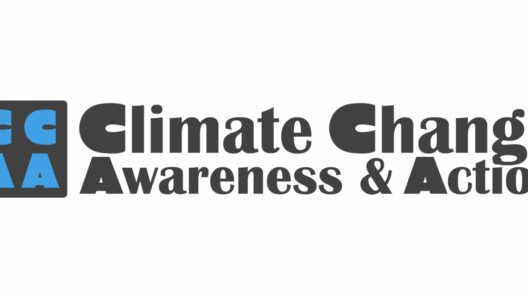Climate change, an existential threat looming over humanity, requires us to rethink our interactions with the environment. It is imperative to confront this challenge in our daily lives, fostering a collective resilience that not only addresses the crisis but also inspires a sustainable ethos for future generations. This document elucidates practical strategies for mitigating climate change while embracing environmental stewardship at an individual level.
Understanding the implications of climate change is essential. Global temperatures continue to rise due to greenhouse gas emissions, primarily from fossil fuels, deforestation, and industrial processes. This escalation engenders a variety of repercussions, including severe weather events, loss of biodiversity, and rising sea levels that threaten coastal communities. Real solutions often necessitate systemic changes accompanied by individual efforts.
One of the most impactful methods individuals can undertake to combat climate change is through a conscious effort to reduce carbon footprints. This can be achieved by reevaluating transport habits. Opting for public transportation, carpooling, biking, or walking reduces reliance on fossil fuels and curtails greenhouse gas emissions. Where feasible, consider transitioning to electric vehicles, which offer a cleaner alternative to conventional automobiles.
Residential energy consumption constitutes a significant contributor to carbon emissions. Hence, retrofitting homes to enhance energy efficiency is critical. Simple modifications, such as installing energy-efficient appliances, utilizing programmable thermostats, and ensuring proper insulation, can dramatically decrease energy usage. Moreover, leveraging renewable energy sources, like solar power, can substantially mitigate one’s impact on the planet. The initial investment is often offset by long-term savings, underscoring the financial and environmental efficacy of such decisions.
Water conservation is another crucial facet of our daily existence that requires attention. Water, a finite resource, is increasingly threatened by climate change and population growth. Simple practices such as fixing leaks, using water-efficient fixtures, and practicing mindful consumption can contribute to a notable reduction in water waste. Additionally, adopting drought-resistant landscaping can help sustain local ecosystems while decreasing water dependency.
Food choices also play an integral role in combating climate change. The agricultural sector is responsible for approximately a quarter of global greenhouse gas emissions, exacerbated by deforestation for agricultural expansion and the methane emissions from livestock. Transitioning toward a more plant-based diet can significantly lower one’s carbon footprint. Incorporating seasonal, local produce into meals not only supports local economies but also reduces emissions associated with food transport. Engaging in urban gardening or community-supported agriculture can foster a deeper connection to food sources while enhancing biodiversity and resilience in local ecosystems.
Waste management is a critical area that often goes overlooked. The production of waste results in the release of methane, a potent greenhouse gas, from landfills. To address this issue, individuals and communities must prioritize the principles of the circular economy—reduce, reuse, and recycle. This involves minimizing consumption, repurposing items, and ensuring recyclables are properly sorted. Composting organic waste is another effective strategy that enriches soil and reduces landfill contribution.
Education and advocacy must accompany personal actions. Knowledge is power; thus, educating oneself and others about the ramifications of climate change is vital. Engage in discussions within your community, attend local meetings, or participate in workshops that elucidate environmental issues. Supporting policies aimed at enhancing renewable energy, protecting natural ecosystems, and reducing emissions through a grassroots approach amplifies individual efforts. Collective advocacy can drive systemic change, elevating environmental issues to the forefront of political discourse.
Moreover, connecting with like-minded organizations and grassroots movements can amplify efforts to combat climate change. Join environmental groups, partake in local initiatives, or volunteer for reforestation projects. Collaborative action not only fosters solidarity but also strengthens community ties while promoting environmental awareness. Every individual effort, when multiplied, can lead to substantial change.
Transitioning to a lifestyle that prioritizes sustainability can be challenging, yet it engenders resilience against the pervasive impacts of climate change. Start by setting attainable goals, such as eliminating single-use plastics from your daily routine or committing to reducing meat consumption. A gradual approach allows for adjustments without feeling overwhelming, establishing a sustainable routine that can be maintained in the long term.
The importance of mental fortitude cannot be understated. Climate anxiety is a common response to the mounting evidence of environmental distress. However, engaging actively in solutions fosters empowerment rather than despair. Recognizing that collective action can effectuate change empowers individuals to persevere in their efforts to protect the planet. Finding inspiration in the successes of others, whether they are individuals, communities, or nations, can ignite a fervor for activism.
Finally, cultivating a relationship with nature is crucial. Immersing oneself in the environment fosters appreciation for its beauty and fragility. This connection compels individuals to act as stewards of the land. Regular interactions with natural settings bolster mental well-being while solidifying the urgency of conservation efforts.
Ultimately, facing the future in the context of climate change necessitates a multifaceted approach. By integrating sustainable practices into daily life, championing advocacy, and nurturing a connection to the environment, individuals can contribute to an enduring legacy that prioritizes planetary health. Embracing this responsibility not only safeguards the environment but also enriches our collective humanity, paving the way for a resilient, sustainable future.








